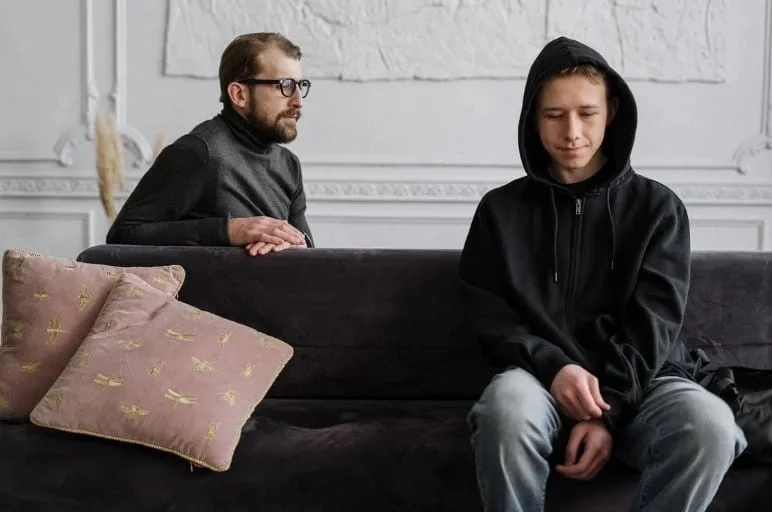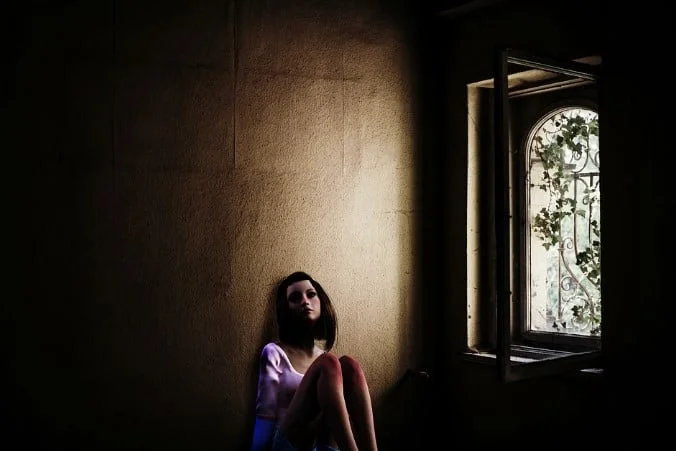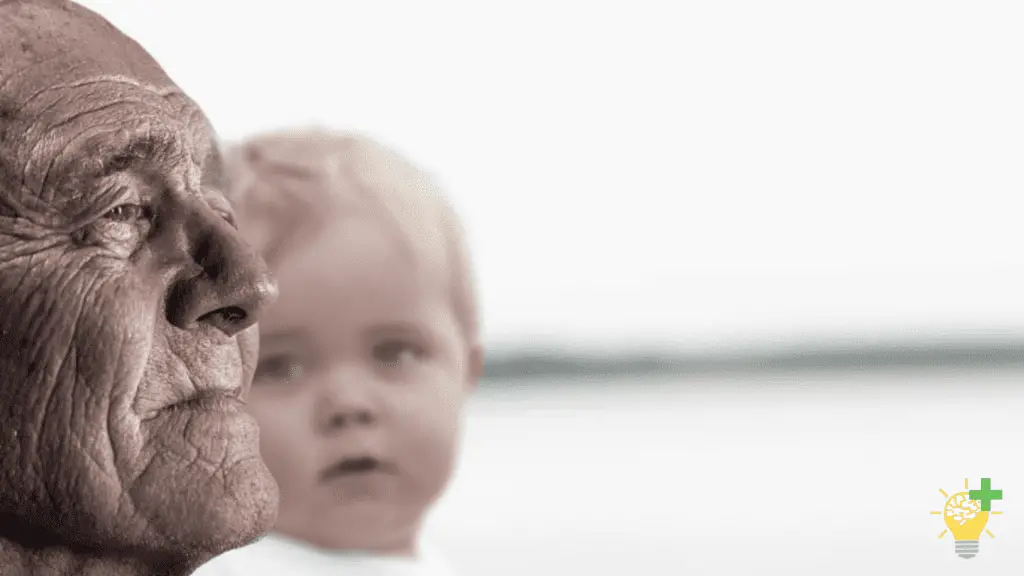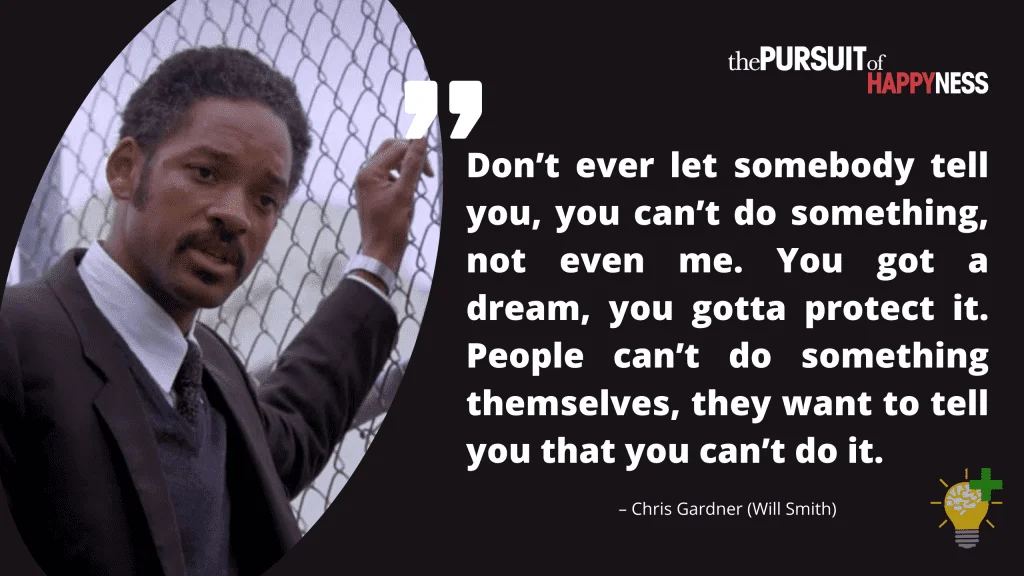It’s ironic how kids, especially teens, want freedom, but many fear the natural process that brings what they desire. Growing up is an immutable part of life, and we must all go through it, regardless of our fears and doubts.
The responsibilities that come with being an adult aren’t fun at all, at least not for many young people. However, most people get over this type of thinking with time.
Unfortunately, a few people actually have a mental disorder that makes them cringe at the thought of growing up and may experience physical symptoms such as headaches and panic attacks. This phobia is known as gerascophobia – the fear of growing up or aging.
Although this phobia is rare, occurring in about 4% to 6% of the population, it can affect both children and adults. It is common for children and teenagers to fear growing up because of the responsibilities that come with being an adult.
On the other hand, younger and older adults with gerascophobia are concerned about potential drawbacks of aging, such as disabilities, loneliness, loss of vigor, loss of beauty, and other issues associated with aging.
Do you have a fear of growing up? What causes it, and how can you manage the phobia? Keep reading to find answers.
What Is a Fear of Growing Up?
The fear of growing up or aging is known as gerascophobia – an irrational and persistent anxiety about getting old.
A person with this phobia may recognize that their fear is abnormal but continue to experience it as real. That’s why telling someone to snap out of their fear hardly solves the problems.
Age-related anxiety is not limited to a specific age group. People in all stages of life can develop this phobia, although it shows up differently depending on a person’s age. Here is what gerascophobia looks like in children, teens, young adults, and older adults.
- Children: Kids may become fearful of increased responsibilities at school and home and may even develop negative attitudes because of this. The fear of growing up can also trigger separation anxiety in children. In addition to this, children may also worry excessively that their parents or primary care providers will grow old and die, leaving them without care and love.
- Teens and young adults: Teenagers and young adults with gerascophobia may experience anxiety about becoming less attractive, independent, and popular. They may also associate aging with depression, dementia, and unhappiness, so they will go the extra mile to stay forever young. This is especially the case with teenagers who are constantly exposed to negative messaging about aging.
- Older adults: Gerascophobia in older adults may manifest as constantly being afraid of death, developing chronic illness, and the uncertainty of retirement. It might also show up as being afraid to lose your independence because of a disability or lack of youthful vigor.
Negative Effects of the Gerascophobia

Although it is normal to have some concerns about growing old or experience some uneasiness about aging, most people come to terms with growing up. However, the phobia can take a toll on the physical and mental health of the few who don’t get over this fear.
First, it can lead to strong dissatisfaction with your physical appearance, which can cause poor self-image and low self-esteem. People who allow unrealistic beauty standards to put them under unnecessary pressure might have an underlying anxiety about aging. Some may even resort to cosmetic surgeries to reduce the signs of physical aging.
Left unchecked, negative perceptions about growing old can lead to increased stress and depression. This is especially the case with people who avoid social interactions to prevent situations that will trigger age-related anxieties.
Self-imposed isolation because you don’t want others to think you are growing older or unattractive can lead to loneliness, as it prevents you from maintaining healthy social connections.
Some people who fear aging can also develop poor eating habits, such as under-eating to slow down growth. The 14-year-old boy with a severe case of gerascophobia who attempted to prevent physical development by not eating much food is a prime example.
While this is an extreme case, many people under-eat in the hope of staying attractive. Unfortunately, poor eating habits can result in skin problems, hair loss, and falling ill more often.
How to Know if You Have Gerascophobia

Common symptoms of gerascophobia may include:
- Palpitations
- Inability to relax
- Panic attacks
- Excessive sweating
- Dizziness
- Breathlessness
- Body aches
These symptoms are not specific to gerascophobia, so it might be difficult to determine whether your inability to relax results from the phobia or something else.
However, there is a strong indication that you might have an irrational fear of growing up or aging if, in addition to these symptoms, you observe that you:
- Persistently think of dying or death.
- Tend to avoid situations (such as birthdays) and people (such as old classmates) that may remind you of aging.
- Steer clear of physical activities (such as hiking) that may cause physical wearing of your body.
- Tend to use anti-aging products and treatments excessively.
- Avoid seeing a doctor for a diagnosis of the condition because they may tell you that you are aging.
Common Triggers of Gerascophobia
It is unclear what causes the fear of growing up or aging, but what we believe about aging certainly plays a huge role in how we feel about the natural process. While experts aren’t sure whether or not the phobia is a genetic problem, many of the triggers are well-known.
Some of them include:
1. Personal Experience With Older People
Living with older adults in your home gives you a front-row seat to witness all the issues associated with aging. You get to see how these adults face mobility issues, financial difficulties, various health problems, and a general decline in vigor.
All of these can make any younger person a bit worried about growing older. And if you have gerascophobia, the situation will definitely increase your anxiety.
2. Age-Based Discrimination
Whether in the workplace, school, or social situations, certain considerations or opportunities might be limited to people within a specific age group. A person with a debilitating fear of growing up can easily get worked up or react badly if they are discriminated against because they are “too old” to be considered.
3. Annual Events
Death remembrance or anniversaries, birthdays, wedding anniversaries, and New Year celebrations can trigger anxiety because they are yearly reminders that we are getting older.
Beyond growing older, these events can make individuals with an irrational fear of growing up see how the passage of time makes them more fragile, less attractive, and less independent.
4. Pressure from the Anti-Aging Beauty Industry
The beauty industry makes a ton of money from anti-aging products and treatments. Unfortunately, individuals with a heightened fear of aging are under continuous pressure to undo or fight the natural process of growing older because of the propaganda from the anti-aging beauty industry.
5. Negative Messages about Aging in the Media
Many young people are easily influenced by what they see in the media, especially social media. And youthfulness is often celebrated on social media, where most teens and younger adults spend a significant amount of time daily.
This explains why they are often self-conscious and worry excessively about physical appearances. Such exposure can trigger deep-rooted insecurities, particularly as it relates to feeling unworthy because they are growing older.
How to Manage Gerascophobia

What should you do if you think you have a fear of growing up? You probably already know that worrying isn’t very helpful, so you should look for a more practical solution to help you deal with the fear.
If you think your child’s fear of growing up is abnormal, consider empowering your child by exposing them to positive thinking activities for children.
But if you are the one facing this fear, here are a few strategies to help you cope with it.
1. Engage in New and Exciting Activities
Avoidance behavior and self-imposed isolation rarely help anyone feel fresh. On the contrary, these attitudes can lead to loneliness, boredom, and cognitive decline. A better way to manage your fear of aging is to find ways to participate in new activities and meet new people rather than hiding away from people.
Whether it is a new hobby or interest, starting a new activity can make you feel challenged and help you feel alive.
2. Surround Yourself With Positive People
Spend time with people who are happy with their bodies and proud of themselves just the way they are. These supportive people will inspire you to love yourself – flaws and all – and will also nudge you back on track when you start worrying too much about the normal process of aging.
3. Think of Aging as a Privilege
Aging is a gift. If you are an older adult, pause and think about the people you knew at a younger age. Not all of them live long enough to experience the natural process of growing old and all the many blessings, experiences, and excitement it brings.
When you shift your perspective in this way, it can help you cope better with the idea of growing old.
4. Stay Healthy
Focus on eating a well-balanced diet rather than obsessing over cosmetic products to keep your skin supple and youthful. Your body needs real nutrients to stay healthy and not mere surface dressing.
Also, include regular exercise in your daily routine, even if it is for only 10 to 15 minutes. Regular physical activities combined with healthy nutrition can help you age gracefully, so you don’t have to worry about losing vigor prematurely.
5. Seek Professional Help
While most people will eventually get over their fear of growing up, a few others won’t.
The good news is that you don’t have to tackle gerascophobia all by yourself if your fear of growing up is persistent and abnormal.
I strongly recommend seeking professional help if the fear of growing up negatively affects your daily functioning.
Final Thoughts
The fear of growing up is far more common than many people realize. Nearly all of us are afraid of old age and its associated problems to some extent. You may not have full-blown aging anxiety or gerascophobia, but you may entertain a certain degree of concern about growing up.
Indeed, growing up can be scary for children, and aging can be worrisome for adults. However, it is a natural part of life that brings lots of prospects and adopting a more positive outlook on life can help you cope with growing up better.
Unfortunately, those with gerascophobia have a debilitating fear of growing up or aging, and the phobia interferes with their daily activities. If this is you, consider seeking professional help.




